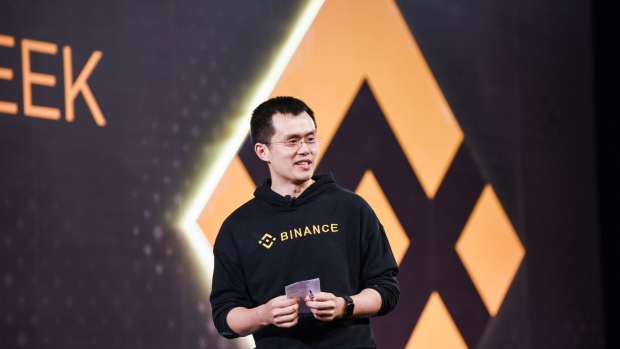Nov 13, 2020
Largest crypto exchange's CEO speaks out on regulation, trends
, Bloomberg News
Bitcoin could move to US$50K or higher in the next few months: Billionaire investor Mike Novogratz
Once again, cryptocurrencies have vaulted into the limelight. Prices are surging and interest is spiking, with everyone from PayPal to Fidelity to JPMorgan is showing greater interest.
For Zhao Changpeng, chief executive officer and founder of Binance -- the world’s largest spot crypto exchange by trading volume -- the latest developments are encouraging.
“Right now, we are definitely seeing more users come in, more adoption happening and more institutional participation,” said Zhao (who is also known as “CZ”) in an interview from Singapore. “Overall, things are going pretty well, I would say.”
The optimism over institutional investor interest, among other factors, has led Bitcoin to more than double this year. Following gains of about 20 per cent this month, the coin has once again spiked above US$16,000 and is sitting around its highest level in nearly three years. On Friday, it was little changed at US$16,055 as of 11:12 a.m. in New York.
Meanwhile, the regulatory environment has been rapidly evolving, with greater restrictions in many areas of the world. Global central banks have also been moving toward developing their own digital currencies.
A lot has changed this year and there’s both negative and positive developments, says Zhao. Bloomberg News asked him to weigh in on recent trends and more. The following interview took place on Nov. 12 -- answers have been condensed for clarity and length.

On China’s Digital Currency Foray
Though global central bankers for a while snubbed digital currencies, many are now rushing to better understand potential use cases. A survey by the Bank for International Settlements of 66 central banks earlier this year showed heightened interest in digital currencies and an increasing number said they are looking at issuing their own so-called central bank digital currencies, or CBDCs.
China has been among the most proactive on this front and its central bank recently kicked off testing of its digital cash in a handful of cities.
China is “way ahead” of other countries, said Zhao, adding that this will put pressure on others to push their efforts forward. “The first one to have a central bank digital currency working will be in a position to attract a lot of international usage, international volumes,” he said. “This probably will help significantly in making RMB a more dominant currency in the world and if that works, then I think that will put pressure on other central banks to get their own central bank digital currency out as soon as possible.”
On Recent Regulatory Developments
China banned cryptocurrency exchanges and initial coin offerings in 2017 and Hong Kong has made moves recently to regulate crypto exchanges. But that doesn’t impact Binance’s operations because the firm hasn’t been in China since then and is not involved in Hong Kong, said Zhao.
“Our position is usually we want to see other smaller exchanges to succeed first in any geographic location and then we will expand our services potentially to cover those regions as well.” Still, he says that the Asia market “is pretty significant” -- he estimates 25 per cent to 40 per cent of daily trading volume originates there, depending on the news flow.
On Operating in the U.S.
Binance is one of the biggest names in crypto and processes about US$2 billion in daily trading volume on average. But it does not operate in the U.S., he said.
“We have always blocked U.S. access, but users do find intelligent ways to get around our block sometimes and we just have to be smarter about the way we block,” he said. “Basically, we do continually try to improve our blocking. There are sometimes a few guys who want to circumvent our blocking and still use the platform and we have to come up with a smarter way to protect that and when we do, we block them.”
As for its relationship with Binance.US -- among other things, Binance licenses technology to Binance.US and lends it branding support, said Zhao. But Binance.US is an independent entity and is fully compliant in the U.S., he said, though there are still a handful of states it can’t yet service.
“Hopefully they’ll be able to get those licenses and be able to offer those services.”






